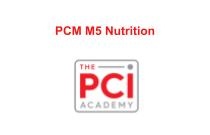Image Interpretation - Gynaecological Ultrasound: The Ovaries and Adnexa
Regina Fernando
This session considers the sonographic appearance of the adult premenopausal ovaries and adnexa. It will include an overview of normal appearances and common pathology, and discuss common pitfalls to avoid. Tips on reporting will be offered.
Normal Gynaecological Anatomy: Vagina and Ovaries
Mike Weston
This session covers the normal ultrasound (US) and magnetic resonance imaging (MRI) appearances of the ovaries and vagina. Physiological changes are also included.
Ultrasound Diagnosis of Ovarian Masses
Mike Weston
This session explores the ultrasound features and signs used to diagnose common ovarian lesions and distinguish benign from malignant conditions.
Image Interpretation - Gynaecological Ultrasound: Children and Adolescents
Dr Anne Marie Coady
This session will consider the sonographic appearance of the prepubertal female pelvis. It will include indications for examination, normal anatomy and common pathology. Tips on phraseology will be offered.
COVID-19 Vaccine Administration
Prof. Tumbwene Mwansisya
This course is aimed at equipping the nurses and midwives on proper vaccine administration to ensure the safety and effectiveness of COVID-19 vaccine. This course adheres to the CDC recommendations that requires each health care personnel who administer vaccines to have received comprehensive, competency-based training on vaccin....
ABG Analysis
Lilian Nuwabaine
This course is aimed to equip Nurses and Midwives with knowledge and skills about ABG analysis.
Difficulty in Breathing
Lilian Nuwabaine
This course is aimed to equip Nurses and Midwives with knowledge and skills about managing a patient with difficulty in breathing
COVID-19 Booster
Dr Maureen Akolo
This course intends to equip nurses with information on COVID 19 boosters approved and being used globally.
Diabetes in Pregnancy
Clare Etherington
This session discusses the care of women with diabetes from pre-conception through to the postnatal period, and about screening for and treatment of gestational diabetes.
CKD - Treating Complications of Advanced CKD - Anaemia
Matthew Hall and Peter Topham
This session is the first of a two-part session. It is continued in Chronic Kidney Disease/Treating Complications of Advanced CKD - Mineral and Bone Disorder. This session will discuss the role of anaemia in advanced chronic kidney disease. The session will explain how to evaluate the cause of anaemia in a patient with chronic k....
CKD - Safe Prescribing in a Patient with Pre-existing Renal Disease
Rachel Westacott and Jane Little
Patients with renal insufficiency are more likely to experience adverse drug reactions. Renal insufficiency and dialysis alter pharmacokinetics and pharmacodynamics of many commonly used drugs. Furthermore, different modalities of dialysis affect drug metabolism in different ways. This session aims to present the factors that ar....
CKD - Effect of Commonly Used Drugs on Renal Function
Rachel Westacott and Gill Hartley
Patients with chronic kidney disease often have other co-morbid conditions. Drug prescribing needs to take the level of renal function into account. This session presents common prescribing scenarios for patients with chronic kidney disease.
Hypertensive Heart Disease
Dr Conor Gillan and Dave Murray
Hypertension is a major risk factor for cardiovascular morbidity and mortality. This session discusses the effects of hypertension on the heart and its function, the diagnosis of hypertensive heart disease and how it may affect the anaesthetic plan.
Management of Intra-Operative Hypotension and Hypertension
Seema Quasim
This session describes the causes and management of two common intra-operative critical incidents; hypotension and hypertension.
Basic Anatomy and Physiology
Doctor Ruth Lewis
This session introduces the anatomy and physiology of the male and female reproductive systems.
Choosing Contraceptive Methods
Dr Vinod Kumar
This session will discuss the principles, practical application and various ways of exploring an individual’s preference when wanting to start or change their method of contraception.
Combined Hormonal Contraception (CHC) Methods
Fiona Baldwin
This session looks at the use of combined hormonal contraception (CHC) methods containing oestrogen and progestogen. It gives an overview of the advantages, disadvantages and possible side-effects, as well as how to counsel individuals wishing to commence or continue using CHC.
NCD Operations M4: Call and Recall
Primary Care International (PCI)
In this unit you will consider why having an appointment and call and recall system is important for NCD management. You will look at some examples of how appointment and call / recall systems can be implemented. Before you start this module find out about the appointment system and any call/ recall systems for missed appo....
PCM M6: Gynaecology Part 1
Primary Care International (PCI)
This learning unit will cover some common gynaecology disorders. You may find it helpful to have a pen and paper to take notes Guidance in this learning unit is based on the National Institute for Health and Care Excellence (NICE) guidelines, along with others referenced at the end.
PCM M4 Disorders Due To Substance Misuse
Primary Care International (PCI)
In this unit we'll look at how to help patients with disorders due to alcohol and drug misuse.
PCM M5 Growth and Development
Primary Care International (PCI)
In this unit we'll look at how you can support healthy growth and development.
PCM M5 Nutrition
Primary Care International (PCI)
In this unit we'll look at the benefits of a healthy diet.
Colour (Anaemia and Cyanosis)
Dr Wendy Tyler, Mrs Susan Braid, Mrs Emma Morris, and Dr Alan Fenton
This session describes how to to identify, stabilise and transfer an unwell newborn who presents with signs of a pale colour or cyanosis.
Hypoxia and Encephalopathy
Dr Wendy Tyler, Jacqui Angell, Paula Pryce, and Dr Alan Fenton
This session describes the stabilisation and transfer of a baby born in poor condition in a community setting and subsequent safe transfer for both staff and baby.
NCD Operations
Primary Care International (PCI)
This comprehensive online course is designed to equip primary care practitioners with essential skills and knowledge to develop and manage effective systems for the care of patients with non-communicable diseases (NCDs). With a focus on creating sustainable operations that support NCD care, the course comprises one intensive mod....
























